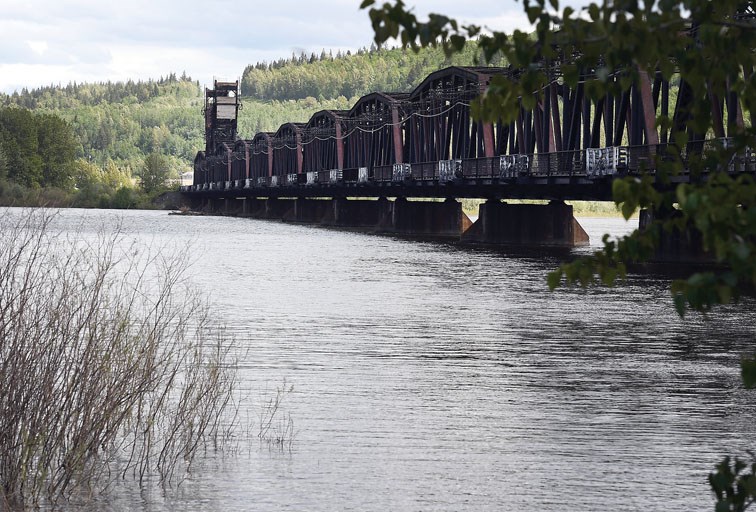Nearly half of the Fraser River basin will have gone through a transition from snow-dominated to rain-dominated by the end of this century in response to global warming, two University of Northern British Columbia professors are predicting.
Dr. Stephen Déry and Dr. Siraj Ul Islam base their outlook on a model of the basin's hydrology. They ran the model for 150 years, from 1950 to 2099, using future climate projections from 21 global climate models.
As the climate warms, the ratio of snow to rain will decline, causing river flows peak earlier in the year with reduced volume, according to their projection. As well, they say runoff in the cold seasons - fall and winter - at the outlets of the Fraser River and its major tributaries will increase substantially and its year-to-year variability will more than double.
The marked increase in cold-season runoff is most likely linked to heavy rainfall from more frequent land-falling "atmospheric rivers" - long, meandering plumes of water vapor often originating in the tropical oceans that bring sustained, heavy precipitation to the west coasts of North America and northern Europe, often known as Pineapple Express storms.
Despite the steady decline in the snowpacks, the modelling suggests the increase in cold-season rainfall may lead to peak annual floods that rival or exceed historic record levels.
The research is published in two scientific journals: Geophysical Research Letters and Hydrology and Earth System Sciences.
"Our work is the first to directly investigate the impact of these 'rivers in the sky' on 'rivers on the land' using climate model projections," said Islam. "The results presented in both papers could provide useful guidance for future water management and decision-making in the Fraser River Basin."



